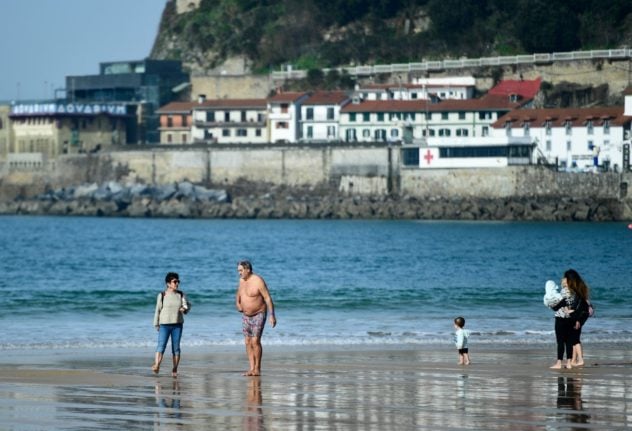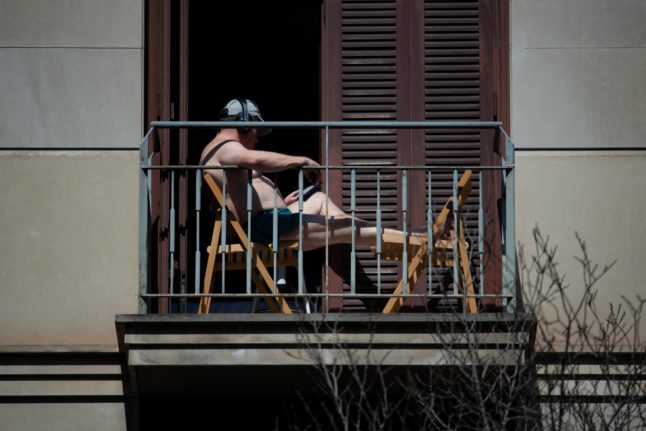The average temperature in mainland Spain for January 2024 was 8.4 Celsius, or 2.4 degrees higher than average for the period and 0.4 degrees above the previous record set in 2016, Aemet said.
Temperatures reached or exceeded 20 Celsius last month at nearly 400 meteorological stations, or nearly half the country’s total.
Temperatures rose to 29.5C in the eastern region of Valencia, 28.5C in Murcia in the southeast and 27.8C near Malaga in the south — levels usually seen in June.
The unseasonable winter weather, which drew people to beaches and outdoor cafes across Spain, delayed the start of the ski season and worsened a years-long drought in Catalonia in the northeast and in the southern region of Andalusia.
While January “was a rainy month overall, the distribution of rainfall was very uneven: at least it rained where rainfall was needed the most”, Aemet spokesman Ruben del Campo said in a post on X.
Spain had already in 2022 experienced its hottest year since Aemet’s annual records began, with an average annual temperature of nearly 15.5 Celsius.
It was the first time that the average yearly temperature surpassed 15 degrees Celsius.
Catalonia’s regional government declared last week a drought emergency for Spain’s second-largest city of Barcelona and much of the surrounding region, paving the way for tighter water use restrictions after three years without significant rainfall.
It took the measure after water levels at reservoirs in the Mediterranean region fell below 16 percent of full capacity, the benchmark set by the authorities for applying a new round of water-saving measures that will affect around six million people.
Water levels in some reservoirs in Catalonia are so low that old bridges and even a church bell tower have resurfaced in some areas.
Measures to curb water use include a ban on using fresh water for swimming pools, with some exceptions for recognised use in sports. Cars can also now be washed only with recycled water and public gardens irrigated with groundwater.
The measures aim to cut the amount of water used to irrigate crops by 80 percent, doubling the 40 percent reduction introduced last November.
Industries must cut water use by 25 percent, whereas previously it was 15 percent.
‘Complicated situation’
Catalonia is facing its worst drought since records began in 1916, with rainfall lower than average in the region for the past three years.
The drought has lasted more than twice as long as the previous dry spell in 2008, the regional government said.
Andalusia is also struggling with severe drought, with regional authorities warning that water-use restrictions will be needed in Seville and Malaga this summer if there is not sufficient rain before then.
Andalusia and Catalonia, Spain’s two most populous regions, are both preparing to import fresh water by boat if needed.
“We are facing a very complicated situation,” Agriculture Minister Luis Planas told reporters in Madrid after the report of January temperature record.
“Spaniards know very well that climate change is here,” he added.
Experts say climate change driven by human activity is boosting the intensity and frequency of extreme weather events such as heatwaves, droughts and wildfires.



 Please whitelist us to continue reading.
Please whitelist us to continue reading.
Member comments